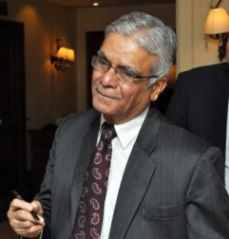Interviews
News Flash
Uster hosts 'Quality University' in Goa
28 Feb '14
5 min read

Total growth along the entire Indian value chain from cotton to finished goods was also forecast by G. Punnaiah Choudary. He predicted that India would “take pole position in the worldwide textile sector in the next four to five years. This advance would be heightened by the fact that China was already starting to cut back production of commodity yarns because of rising costs and was likely to also extend this to commodity fabrics at some point.
Optimism for the future of Indian textiles, expressed strongly by Shashi Stalekar, was underpinned by assistance from a number of state governments, he said. Spinning mills projects such as a recent one in Gujarat would help the goal of adding value to raw cotton.
And a potential obstacle: the Trans-Pacific Partnership
A possible counterbalance to the positive impact of Chinese government actions for Indian spinners is on the horizon, in the form of the Trans-Pacific Partnership (TPP). Many experts see this as bringing disadvantages to the national textile sector, it was reported.
The TPP is a proposed trade agreement under negotiation by Australia, Brunei, Chile, Canada, Japan, Malaysia, Mexico, New Zealand, Peru, Singapore, the United States and Vietnam. The idea is to enhance trade and investment, promote innovation, and support job creation and retention.
But it is the TPP's aim of duty-free trade which is seen as putting Indian industry at a competitive disadvantage. Nevertheless, the potential export benefits continue to attract interest from other countries, including Taiwan, Thailand, Philippines, Laos, Colombia, Costa Rica, Indonesia, Cambodia and Bangladesh – as well as India itself and even China.
Vital interface: management and technical expertise
The expert panel was part of a three-day USTER QUALITY UNIVERSITY event, staged in Goa during December 2013. The target audience was spinners from Andhra Pradesh province, and a total of 28 mill owners and directors took part to hear advice on improving profitability and optimizing quality.
Sessions devoted to raw material, blowroom, carding and winding procedures featured practical examples and information, which were well appreciated by the attendees. The blend of educative presentations on spinning processes, interactive dialog and panel discussions provided vital insights tailored to the needs of the spinning companies taking part. It was an opportunity for mill chiefs to come face to face with technical experts to explore important issues and gain renewed confidence in business decision-making.
Thomas Nasiou, head of textile technology at Uster Technologies, summed up the benefits of the event: “Our objective with USTER QUALITY UNIVERSITY was to share the experiences and best practices followed by spinning mills from around the globe with top management of Indian spinners, helping them run their spinning operations with a quality mindset, to achieve optimum results in both profitability and quality.”
USTER
Popular News
Leave your Comments
Folker Stachetzki
Brother Internationale Industriemaschinen GmbH
Salvatore Piccione
Label - Salvatore Piccione
































-Ltd..jpg?tr=w-120,h-60,c-at_max,cm-pad_resize,bg-ffffff)





.jpg?tr=w-120,h-60,c-at_max,cm-pad_resize,bg-ffffff)
.jpg?tr=w-120,h-60,c-at_max,cm-pad_resize,bg-ffffff)






